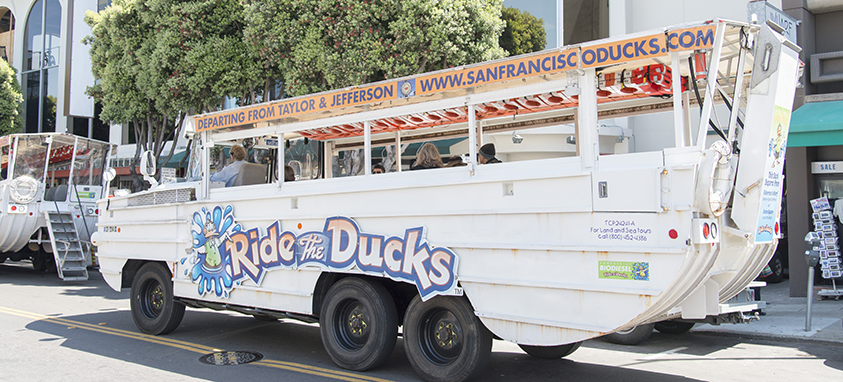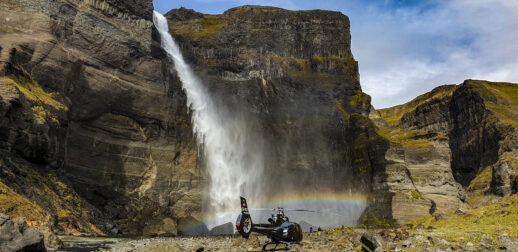Tragic boating incidents in which tourists and crew members were killed and injured on Hawaii Island and in Branson, Missouri made headlines this week.
On Hawaii Island, a volcano exploded, shooting a fireball flying through the roof a Lava Ocean Tours vessel, injuring 22 passengers on July 16, according to Hawaii Department of Land and Natural Resources.
Yesterday, a duck boat carrying 31 passengers capsized on Table Rock Lake’s turbulent water in Branson, causing 17 fatalities, Stone County Sheriff Doug Rader confirmed this morning. High winds were also reportedly a contributing factor. Onlookers on Branson Belle Showboat posted video on social media that shows two duck boats struggling with the waves. One boat made it safely back to shore, while the other sank.
WOW – video captures duck tour boat sinking in Missouri w/31 people on board. 11 people are dead, including children, 5 people are still missing in the lake and 7 are in the hospital. You can see there was terrible weather. A severe thunderstorm warning was issued 30 mins before. pic.twitter.com/w8T17pE37B
— Erica Rakow (@EricaRakow) July 20, 2018
The tour company, Ride the Ducks Branson, removed its usual website information this morning, and posted an apologetic message on the homepage. “We are deeply saddened by the tragic accident that occurred at Ride The Ducks Branson,” it reads. “This incident has deeply affected all of us. Words cannot convey how profoundly our hearts are breaking.”
The message goes on to say, “We will continue to do all we can to assist the families who were involved and the authorities as they continue with the search and rescue. The safety of our guests and employees is our number one priority. Ride the Ducks will be closed for business while we support the investigation, and to allow time to grieve for the families and the community. Thank you for your support, and we ask that your thoughts and prayers be with the families during this time.”
Safety First
Meeting professionals often plan an outing on the water to enjoy the sunset or see the sites. There are risks involved in every type of transportation and activity, but what do planners need to do to minimize risk and avoid being liable in the unlikely event things go awry?
- Book your trip with a reputable company that carries insurance.
- Have guests sign waivers.
- Make sure the boat has proper safety measures, such as life vests for every passenger that are easily accessible.
- Have crew member review safety procedures before departing the port.
- Whistles and flares can be used to draw attention to an emergency and alert first responders where to concentrate their rescue efforts. Time is of the essence, so the sooner rescuers can intervene, the more heroic the outcome will be. The duck boat incident occurred after 7 p.m., giving rescuers very little daylight time to find people who had gone overboard.
- Print a predeparture checklist, provided by boatsafe.com.
- Monitor the weather and water conditions to determine if it is safe not just for when you leave the dock, but for the entire duration of the trip. If there is any concern, it’s better to err on the side of caution, and cancel the boat ride. Have a Plan B activity ready to go in your back pocket.
“It’s upsetting to hear people say the storm at #TableRockLake ‘came out of nowhere.’ It did not. Moreover, those in charge of water activities and/or duck tours need to rethink their plan when it comes to storm safety. There was plenty of time to get those boats out,” tweeted JD Rudd, meteorologist for WEWS-TV in Cleveland. “It absolutely could have been prevented…if the right people had been paying attention.”
17 people died on a duck boat in SW Missouri yesterday. It absolutely could have been prevented… If the right people had been paying attention.
Saying the storm "came out of nowhere" or "we had no warning" is ignorant and bogus. Very, very sad. https://t.co/dwrA2WOOqO— ⚡JD Rudd ☈ (@jdrudd) July 20, 2018
It’s Better to Be Proactive Than Reactive
The death toll in Missouri could have been even higher. Some ticketed passengers, such as Tony Burkhart, made a last-minute decision to cancel his plans. “We saw high winds + bad weather roll in, so I decided to get a refund and leave with my wife,” he tweeted. “Headed out, countless first responders + emergency vehicles were going in #Branson to help with the #DuckBoat incident. Branson Belle crew helped toss life preservers to those overboard.”
We saw high winds + bad weather roll in, so I decided to get a refund and leave with my wife. Headed out, countless first responders + emergency vehicles were going in #Branson to help with the #DuckBoat incident. Branson Belle crew helped toss life preservers to those overboard. pic.twitter.com/71H61ir0Gy
— Tony Burkhart (@tonyburkhart) July 20, 2018
Many tourist-centric cities with waterways offer duck boat tours that provide sightseeing excursions on the land and sea. Before putting this on your group’s itinerary, research the safety history of such vessels.
The timeline of duck boat-related accidents shows this tragedy in Branson is not the first. According to WCVB-TV in Boston, 13 passengers were killed when their boat sank near Hot Springs, Arkansas, in 1999. There have also been fatalities during the land-based portion of tours. Five college students were killed in Seattle in 2015 when their vehicle collided with a bus, and one woman was killed in Boston in 2016 when her scooter was hit by a duck boat.
As a result, Massachusetts implemented stricter safety regulations for such tours, including prohibiting drivers from narrating and installing new technology, such as sensors and cameras. “We do not allow our ducks to go into the Charles River if there is lightning in the area or if conditions are forecasted to exceed our operating parameters set by the U.S. Coast Guard,” Bob Schwartz, director of marketing and sales for Boston Duck Tours, told the news station.
Some accidents are just a fluke and are impossible, or more difficult, to predict. People visiting active volcanos should be made aware that they can erupt at any time with little to no warning, and that they are putting trust in the tour company to stay within the safe zone established by the U.S. Coast Guard.
There are also many risks involved in land and air travel. And some companies, such as Hornblower Cruises—with fleets in major area including San Francisco, Southern California and New York City—have a great reputation for providing fun event venues.




